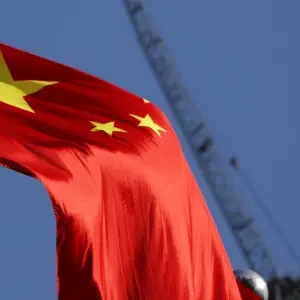Pakistan has demanded that the United Nations charter govern the use of artificial intelligence (AI), especially in the military, cautioning that “AI must not become a tool of coercion.”
Pakistan’s request at the UN is in line with broader worries expressed by underdeveloped countries that powerful states may sway the laws to their benefit as artificial intelligence develops without enough constraints.
While nations in the Global South, ranging from Brazil to Indonesia, have cautioned that unrestrained deployment could worsen inequality, the United Nations General Assembly (UNGA) earlier this year adopted a resolution calling for inclusive and equitable AI governance that closes the digital divide.
Speaking at a high-level discussion on artificial intelligence (AI) under the agenda item “Maintenance of international peace and security” on the fringes of the 80th UNGA session in New York, Defense Minister Khawaja Muhammad Asif emphasized the potential for abuse of AI and demanded that the UN Charter and international law “fully govern the development and use of AI applications.”
According to a quote from the state-run Associated Press of Pakistan (APP), “AI must not become a tool of coercion, or technological monopoly.”
President Lee Jae Myung of South Korea, who is in charge of the 15-member Council in September, presided over the meeting, according to the APP.
The minister emphasized that although AI may be the “most consequential, dual-use technology,” it also has the ability to exacerbate “inequalities, and destabilize international order,” and warned against its military uses.
Speaking to the 15-member panel, he went on to say, “Applications should be prohibited without meaningful human control.”
“Unregulated and irresponsible use of AI enables disinformation campaigns, offensive cyber operations, and development of new types of armaments,” Asif noted, highlighting the dangers of unregulated AI.
“There is a serious risk from the increasing weaponization of AI through AI-driven command and control systems and autonomous weapon systems.”
“Commit to measures that prevent destabilizing use, and pre-emptive incentives,” he urged the states.
Asif cited the “autonomous munitions and high-speed dual-capable cruise missiles were used by one nuclear-armed state against another during a military exchange” during the four-day military standoff between India and Pakistan in May, warning that the incident highlights the “dangers that AI can pose.”
“AI lowers the threshold for use of force, making wars more politically and operationally feasible,” he warned, warning of the evolving nature of warfare.
The minister warned that AI “blurs domain boundaries, merging cyber, kinetic, and informational effects in unpredictable ways,” and that it “compresses decision-time, narrowing the window for diplomacy and de-escalation.”
He advocated using AI to advance “peace and development” as opposed to “conflict and instability.”
“In matters of war and peace, let us maintain the primacy of human judgment, making sure that, even in an era of intelligent machines, innovation is guided by principles of morality and humanity,” Asif stated.
While outlining the various applications of AI, such as food insecurity, de-mining, and violence outbreaks, UN Secretary-General Antonio Guterres, who kicked off the discussion, warned that, “Without guardrails, it can also be weaponized.”
He declared that artificial intelligence (AI) is “no longer a distant horizon — it is here, transforming daily life, the information space, and the global economy at breathtaking speed.” Nevertheless, he maintained that innovation must benefit society rather than harm it.
“Humanity’s fate cannot be left to an algorithm,” Guterres said, recalling the creation of the UN’s Independent International Scientific Panel on AI and a Global Dialogue on AI Governance, adding that “humans must always retain authority over life-and-death decisions.”
However, APP cited him as stating that he urged the council and the member states to “ensure that human control and judgment are preserved in every use of force.”
Additionally, according to APP, Gueterres demanded “a ban on lethal autonomous weapons systems operating without human control, with a legally binding instrument by 2026.”
According to APP, the UN Secretary General stated that humans, not machines, should make all decisions about the use of nuclear weapons.
“The international community has risen to the challenge of technologies that could destabilize our societies — by agreeing to rules, building institutions, and insisting on human dignity,” he added, referring to everything from nuclear arms control to aviation safety.
“The time to influence AI for the sake of justice, peace, and mankind is running out. We have to take immediate action.
The “current progress in AI is too concentrated among a handful of companies and countries,” Yejin Choi, a senior fellow at Stanford University’s Institute for Human-Centred Artificial Intelligence, said in his address to the council.
“We leave the rest of the world waiting at the door when only a select few have the resources to develop and profit from AI,” she stated.
“Let’s broaden the definition of intelligence and allow everyone to contribute to its development.”
“Ms. Choi argued that smaller, more adaptable systems could lower barriers to entry, and she urged governments and international institutions to invest in alternative approaches beyond scaling ever-larger models,” according to APP.
“Noting that today’s top AI models perform poorly for many non-English languages and reflect limited cultural assumptions, she also pushed for stronger representation of linguistic and cultural diversity.”
The announcement was made a day after Google said that its “Google AI Plus plan” would be expanded to 40 other nations, including Pakistan.
Farhan Qureshi, the Country Director of Google Pakistan, stated in a statement, “Pakistan’s digital landscape is vibrant and growing, and we’ve been inspired by the creativity Pakistanis have shown in adopting AI tools.”
The National AI Policy 2025 was approved by the federal cabinet in July.
A million AI experts will be trained by 2030, according to the strategy, which also called for the creation of an AI Innovation Fund and an AI Venture Fund to increase private sector participation, 50,000 civic initiatives powered by AI, and 1,000 locally produced AI goods during the following five years.
“Pakistan’s greatest advantage is its youth. While presiding over the July meeting, PM Shehbaz declared that giving people equitable access to AI education, skills, and opportunities is of utmost importance.
SOURCE: DAWN NEWS





